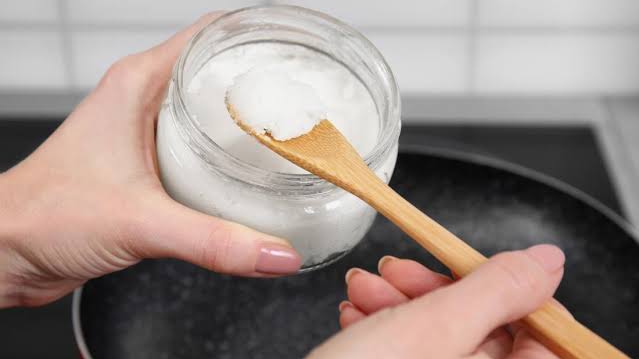Many individuals believe that coconut oil is excellent for you, claiming that it can help with weight reduction and that it has a high smoke point, making it safer to cook at high temperatures. However, dietitians disagreed in a recent poll about whether the perfumed emollient is healthy or magical. What is the reason for this? Here’s what you should know about utilizing coconut oil in place of other oils when cooking.
Coconut oil has more saturated fat than butter (90 percent against 64 percent), yet according to a recent study, butter is neither beneficial nor bad. According to Libby Mills, M.S., R.D.N., L.D.N., a spokesman for the Academy of Nutrition and Dietetics, olive oil has 70 percent monounsaturated fat, which has been demonstrated in several studies to have only favorable effects on cholesterol, elevating the good and lowering the bad. As reported by The Cut.
Proponents of coconut oil point to the fact that around half of its saturated fat comes from medium-chain fatty acids, or MCTs, which can improve “good” HDL cholesterol, but Mills points out that they generally overlook the other half — long-chain fatty acids, which can raise “bad” LDL cholesterol. Any gains in good cholesterol would be counterbalanced by bigger gains in bad cholesterol.
MCTs are also promoted as a fat-burning supplement. Because they don’t have to be broken down in the intestines first, they’re digested by the body faster than long-chain fats, according to Saroja Voruganti, Ph.D., assistant professor of nutrition at the UNC Gillings School of Global Public Health.
In principle, this means your body will utilize them for energy rather than storing them as fat, but simply adding coconut oil to your diet will not help you lose weight. This only works provided you’re not eating more calories than your body requires, and even then, you’re unlikely to notice any significant changes.
The other fats in coconut oil, according to Mills, counteract any supposed slimming effects of the medium-chain fats. “There may be some evidence that MCT oils boost thermogenesis and fat oxidation, but the basic line is that this is only true if a person consumes MCT oil isolated from coconut oil.” She does, however, suggest that cooking with it may have certain advantages. “If sprinkling extra-virgin coconut oil on your vegetables encourages you to eat them, that could be a positive thing.”
Cooking with coconut oil has a higher smoke point than other oils, making it safer to use in stir-fries and baked goods, according to coconut-oil aficionados (a group that frequently overlaps with CrossFit addicts). When oil starts to burn, it breaks down and produces molecules known as free fatty acids, which are linked to inflammation and weight gain-inducing insulin resistance. It can also result in bad-tasting food.
Extra-virgin coconut oil has a smoke point of 350 degrees, while refined coconut oil has a smoke point of 400 degrees, according to Voruganti. This isn’t significantly higher than vegetable oil (400–450) or canola oil (400), nor is it significantly different from olive oil (325–375).
Deep frying, for example, necessitates heating a vat of oil to around 375 degrees, and people are tempted to reuse it because they spilled out so much. The inclusion of any food fragments or seasoning decreases the smoke point of oil for any subsequent usage, as does hitting the smoke point. “You may be using brand new oil, but when it becomes polluted, those other particles also contribute to reducing the smoke point,” Mills explains.
But, according to Voruganti, we don’t need to be concerned about one-and-done sautéing. “Using the same oil over and over causes problems, but if you use fresh oil, the problem may not be as severe.”
Overall, Mills believes coconut oil is a mixed bag, though she understands why it has received so much attention. “As a society, we’re always seeking for the panacea — the one item that would truly solve everything,” Mills explains. “While some of the research is intriguing, and the MCT oils in coconut oil are appealing, they are regrettably packaged with a lot of saturated fat.”
You can cook using coconut oil, but it’s uncertain whether it’s healthier than olive oil or plain old vegetable oil.


